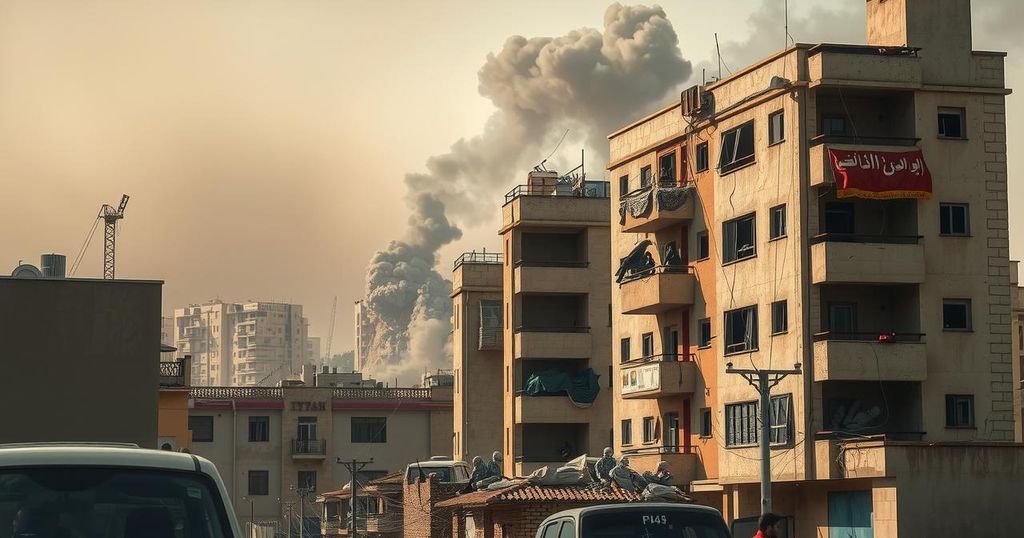Israel has launched multiple airstrikes in southern Lebanon, resulting in civilian casualties and escalating tensions. The Israeli Defense Minister affirmed a strict response to gunfire originating from Lebanon. Despite a ceasefire since November 2024, Israeli military violations exceed 1,500, highlighting ongoing conflicts and territorial control.
On Sunday, Israel executed a series of airstrikes in southern Lebanon, marking the fifth wave of attacks within a single day amidst increasing cross-border tensions. Reports indicate that strikes were primarily directed at three prefabricated houses in Kefarkla, located near the Fatima Gate and within the town center, alongside helicopter deployments delivering sound bombs. Thus far, there have been no casualties reported from these specific strikes.
Prior to these events, Israeli forces targeted civilian residencies in Ainata, resulting in the confirmed death of two individuals by the Ministry of Public Health. Additional strikes were reported in the village of Yaroun, highlighting the broader impact of military actions in the region.
An Israeli drone attack in Meiss El Jabal resulted in one fatality, while subsequent airstrikes in Yater led to one death and another injury, according to local officials. The intense military actions reflect the strained conditions following intermittent ceasefire violations.
Israel’s Defense Minister conveyed a strong stance stating, “We will not allow gunfire from Lebanon and will respond forcefully to any breach of the ceasefire.” Furthermore, military spokesperson Avichay Adraee elaborated on the recent incidents, emphasizing the gravity of gunfire from Lebanon as a violation of established agreements between the nations.
Adraee reiterated, “an unoccupied car parked in the Avivim area near the Lebanese border was fired upon, although no injuries were reported.” He underscored the necessity for Israel to maintain security and the ongoing military presence in response to such threats.
Despite the ceasefire enacted on November 27, 2024, Israeli military actions have surpassed 1,500 violations, including airstrikes and artillery fire. The end of the war has not translated into a withdrawal from occupied territories, as Israeli forces maintain control over several strategic hills without a clear timeline for withdrawal.
The recent Israeli airstrikes on southern Lebanon constitute a continuation of hostilities despite a ceasefire agreement, reflecting deep-seated tensions in the region. With casualties reported and ongoing military actions, it underscores the volatility of the situation. Key statements from Israeli officials reveal a firm commitment to responding to perceived threats, indicating that peace remains elusive as military engagement persists without an established plan for withdrawal.
Original Source: shafaq.com






